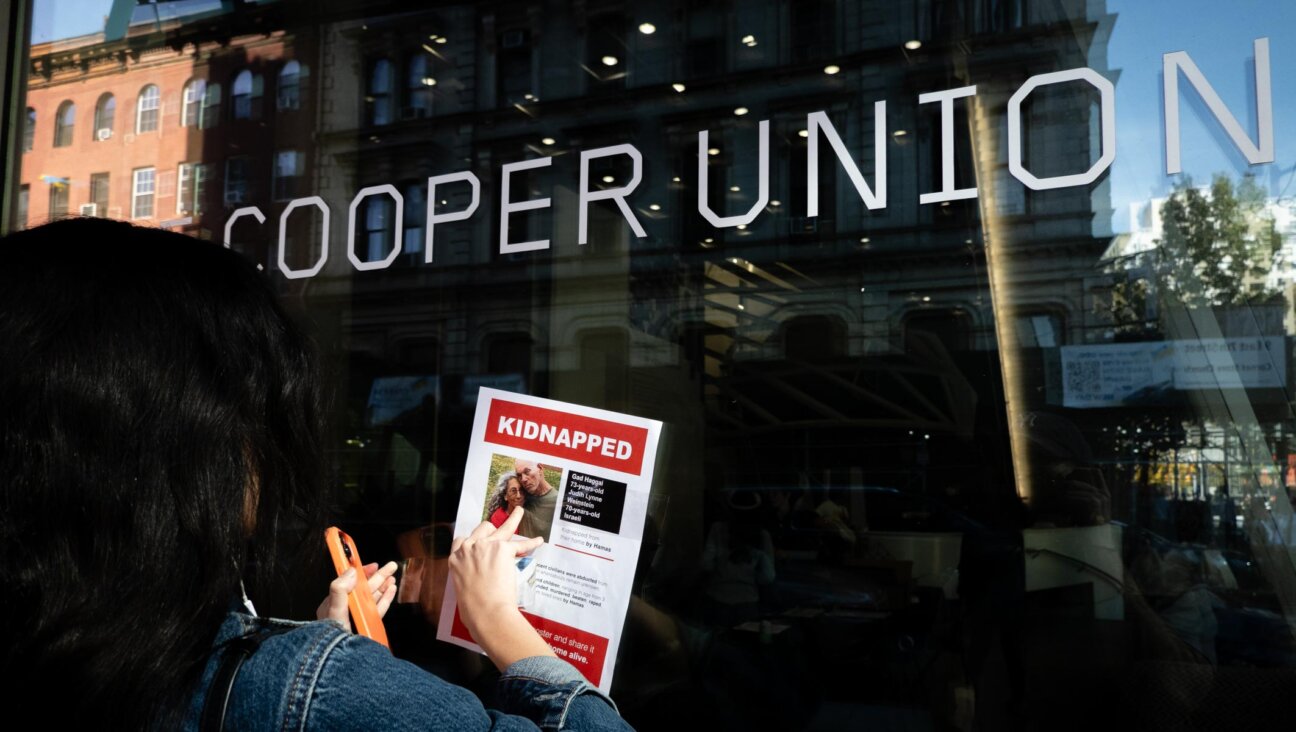Dartmouth Orthodox Students Want Stricter Kosher Rules

Graphic by Angelie Zaslavsky
Orthodox students at Dartmouth College are pressing the school to provide kosher food that adheres to a higher standard.
More than 500 students at the Ivy League school in Hanover, New Hampshire, have signed a petition urging the college to use a more stringent supervising agency for its kosher cafeteria, according to Valley News, a newspaper based in nearby West Lebanon.
The school’s cafeteria is certified by Tablet-K, an agency whose supervisors do not meet Orthodox standards of Shabbat observance. Orthodox students say the lack of strictly kosher food is discouraging religiously observant Jews from applying to Dartmouth.
“Last year, I was forced to make compromises with my religious integrity that I was not comfortable with,” Cameron Isen, a rising sophomore who helped create the petition, told Valley News.
Rabbi Edward Boraz, executive director of the Dartmouth College Hillel, told the paper that there is not a critical mass of students who require higher standards of kashrut.
“It doesn’t mean by any stretch that [the Orthodox students’] concerns are not valid,” Boraz said, “and we need to respond to them, and in fact we are.”
Boraz told the newspaper that maintaining a stricter standard would be more costly, particularly because few Orthodox Jews who could serve as kosher supervisors are willing to relocate to rural New Hampshire, an area with little Jewish infrastructure.
Dartmouth, which has an estimated 400 Jewish students out of a undergraduate population of 4,300, is the only Ivy League school not to offer a glatt kosher standard, according to Valley News.
Meanwhile, in another indicator of challenges for observant Jews on campus, the school recently compensated for Rosh Hashanah and Yom Kippur class cancellations by adding makeup classes on Saturday, the Jewish Sabbath.














